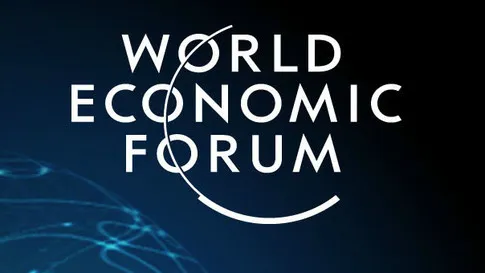Since India is one of the key economies in the world that is developing at the fastest rate, the World Economic Forum has maintained tight cooperation with the nation over the course of the many years that it has held the presidency of the G20.
According to the President of the World Economic Forum (WEF), Borge Brende, India is currently experiencing the “famous snowball effect,” which will lead to an increase in both investments and employment opportunities. This year, it is anticipated that India will record the greatest growth rate of any of the major countries in the world.

“There have been reforms that have led to less red tape, better climate for investments and also the digital revolution is really happening in India,” Brende said, and he emphasised that he is “very bullish and optimistic” about the development trajectory of the country’s economy, but he is not as optimistic about the growth of the global economy.
Since India is one of the key economies in the world that is developing at the fastest rate, the World Economic Forum has maintained tight cooperation with the nation over the course of the many years that it has held the presidency of the G20.
When you get a snowball rolling, it keeps becoming bigger and bigger, and that’s exactly what’s happening with the economy of India right now. It will be an exponential growth in the future years, and you will see a situation where more poverty is erased and more chances are there for young people,” Brende said in an interview with PTI in the nation’s capital. The expansion will lead to more investments, more jobs, and it will bring about an exponential boom in the coming years.
During his brief trip to India, Brende met with several stakeholders to talk about current cooperation as well as India’s chairmanship of the G20. He spoke with a number of ministers from the Union as well as executives from other companies.
“I believe that other countries in the developing world might gain something from looking to India for inspiration. According to what he had remarked, “India is the country with the largest democracy in the world, and it is also an open society with businesspeople, innovators, and free speech.”
In addition, Brende emphasised that India possesses a more extensive ecosystem of startups than any other developing country, and that this ecosystem is continuing to expand. He went on to say that this is something that can serve as an example for other nations as well.
The World Economic Forum (WEF), with its headquarters in Geneva, is an international organisation for public private cooperation. It is most known for hosting the annual Davos meeting, which is frequently referred to as the largest gathering of the world’s elite.
The Forum brings together the most influential people in politics, business, culture, and other spheres of society in order to create agendas at the international, regional, and industry levels. According to him, the World Economic Forum anticipates that India’s economy will rise by about 6% this year, which will be the fastest growth rate for any major economy in the world.
“At the World Economic Forum, we see a growth path ahead for India that is not only strong… In general, I have a positive outlook, but this is contingent upon there not being any adverse influences from the outside. “We have no time for wars, conflicts, or to be complacent,” he stated. “We have no time for any of those things.”
According to a research published by the United Nations earlier this month, it is projected that India’s economy, which is the largest in the South Asia area, will increase by 5.8 percent in 2023 and by 6.7 percent in 2024 (calendar year basis), both of which will be supported by solid domestic demand.
According to the World Economic Situation and Prospects Mid-Year Update, however, rising interest rates and lower external demand will continue to put a damper on investment and exports in 2023.
Brende added that India is already seeing and capitalising on the yield from the reforms that have taken place, which is what the country needs to accomplish in the short-term when it comes to what needs to be done in India.
That ought to serve as motivation for us to keep moving forward with the reform agenda. “In the years to come, India needs to make more investments in education, upskilling, reskilling, and right skilling,” he said. “This includes investing more in infrastructure, connecting different regions even more effectively.”
During the time of the coronavirus pandemic, Brende, who was also a former Norwegian Minister of Foreign Affairs, Trade and Industry, brought attention to the fact that India did something that was quite effective.
“Because of some countries’ excessive spending on stimulus, there is no longer any ammunition left.” India was not in debt itself; nonetheless, it did come up with stimulus; however, Prime Minister Narendra Modi was able to hold back on spending, in contrast to the situation in certain other countries, which are in a debt trap.